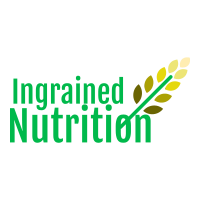Knowing when to introduce solids to your baby can be confusing, especially for first time mums and dads. Introduction of allergens is often done incorrectly or out of date practices are being still being carried out. The question is, when is the right time? 4 months or 6 months? And should we delay introducing cow’s milk, eggs and nuts? Should one food at a time or a mixture?
We’re here to answer those questions!
What age should I introduce solids to my infant?
The exact age though depends on your child, but NEVER before 4 months and paediatric nutrition guidelines and evidence suggests the closer to 6 months the better, allowing a longer period of exclusive breastfeeding, providing protective health effects as well as long-term weight management. However, guidelines from allergen specialists suggest a starting age of somewhere between 4 and 6 months, allows for enough time to expose children to allergenic foods before their first birthday, which current evidence shows may be promising in the prevention of food allergies.
Confusing right! That’s why we need to look at the individual signs of development and readiness in your infant.
Physical signs of readiness
- Sits up on their own without support
- Opens their mouth for food
- Accepts food into their mouth without thrusting their tongue out
- Reaches out for your food
- Show an interest in food and what you and/or their siblings are eating
The time at which a child will show these signs will vary however for most it will be closer to 6 months.
Remember babies’ first foods are for taste, fun and exposure. Never force your baby to eat or introduce solids before an infant shows physical signs of readiness for other reasons such as wanting to reduce breast or bottle feeding or convenience. If your baby does not seem interested in solid foods, wait a couple of days and try again. If your baby is nearing 7 months and has no interest in eating solid foods the please seek advice from your GP. Remember to never force your child to eat solid food and respect their cues if they reject the food you offer.
Introducing Allergens
Advice on introducing foods that are allergens has changed dramatically over recent years and its good to update your knowledge with each child you introduce solids to. Allergen bodies such as ascia (link below) are great sources of information. The guidelines for preventing allergies are still being researched, but current evidence suggests that early and frequent exposure (twice weekly) to allergenic foods is most helpful in reducing the chance of developing food allergies in babies with severe eczema or egg allergy.
Allergenic foods include egg, peanut, wheat, fish, shellfish, other nuts, soy and milk. Offering these foods to your baby before 12 months of age, and including them regularly in your family’s diet is the key guideline. It can be helpful initially to introduce these foods separately, so if your baby does react to them you can identify the triggering food then once an allergy has been ruled out they can be added to mixed dishes. If your child already has a diagnosed allergy, then the treatment for this involves complete avoidance of all sources of this food.
Remember that these first exposures to food shape your need to be positive, and led by your baby. Respect the cues your baby displays, and never force or pressure them to eat solid food. If you feel worried about introduction to solids, then consider making an appointment with a paediatric dietitian to help guide you through this time.
https://www.allergy.org.au/patients/allergy-prevention/ascia-how-to-introduce-solid-foods-to-babies
By Caitlin Mannion, Dietitian




